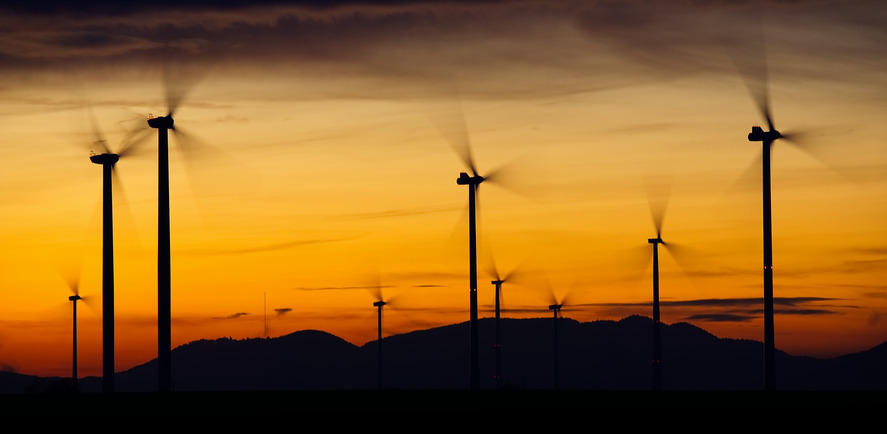The key with these energy resources is that they don’t harm or polite the environment through factors such as releasing greenhouse gases into the atmosphere.As a source of energy, green energy often comes from renewable energy technologies such as solar energy, wind power, geothermal energy, biomass, and hydroelectric power. Each of these technologies works in different ways, whether that is by taking power from the sun, as with solar panels, or using wind turbines or the flow of water to generate energy. Check Reviews about Energy companies here.
A resource referred to as green energy does produce pollution, such as is found with fossil fuels. This means that not all sources used by the renewable energy industry are green. For example, power generation that burns organic material from sustainable forests may be renewable, but it is not necessarily green, due to the CO2 produced by the burning process itself.
Green energy sources are usually naturally replenished, as opposed to fossil fuel sources like natural gas or coal, which can take millions of years to develop. Green sources also often avoid mining or drilling operations that can be damaging to ecosystems. (See Collected.Reviews)
What is Renewable Energy?
Renewable energy is essentially power generated from a source that is constantly being replenished.
In theory, this type of energy should never run out, making it a much more efficient option than non-renewable sources such as fossil fuels and gas, which are damaging to the atmosphere. Renewable energy sources are natural and include the likes of wind power and solar panels.
There is always confusion concerning the difference between Green energy and Renewable energy; Green energy is defined as power generated from natural sources, such as wind, water, and sunlight. This is where some confusion may occur: most green energy sources are also renewable, but not all renewable energy sources are wholly green.
Some people, for instance, argue that while hydropower is renewable, the process of generating vast amounts of it is not, in fact, green. This is because of the industrialisation and deforestation involved in the process of building the huge hydro dam projects dotted around the world.
The most renewable and green power source is, of course, our planet. Therefore, wind, solar, and water are the most efficient, most-used sources of renewable and green energy. These energy sources successfully blur the line between green and renewable energy, thus forming the perfect sustainable partnership.
Types of green energy
The main sources are wind energy, solar power, and hydroelectric power (including tidal energy, which uses ocean energy from the tides in the sea). Solar and wind power can be produced on a small scale at people’s homes or they can be generated on a larger, industrial scale.
This raises the question of why green energy is so important; Green energy is important for the environment as it replaces the negative effects of fossil fuels with more environmentally-friendly alternatives. Since it's derived from natural resources, green energy is also often renewable and clean, meaning that they emit no or few greenhouse gases and are often readily available.
Even when the full life cycle of a green energy source is taken into consideration, they release far less greenhouse gases than fossil fuels, as well as few or low levels of air pollutants. This is not just good for the planet but is also better for the health of people and animals that have to breathe the air.
What type of energy do we use in the USA?
The United States uses a mix of energy sources. It uses and produces many different types and sources of energy, which can be grouped into categories such as primary and secondary, renewable and nonrenewable, and fossil fuels.
Primary energy sources include fossil fuels such as petroleum, natural gas, and coal, nuclear energy, and renewable sources of energy. Electricity is a secondary energy source that is generated from primary energy sources.
Basic things to know about Energy service companies.
Energy Service Companies (ESCOs) are becoming more popular these days, and this poses a mountain of hard decisions to make for people concerning the energy service company to choose. Some don't even know what energy companies offer.
In case you are thinking of which ESCO to choose, the details below are for you.
For more than 150 years, utilities have generated their electricity and sent it down power lines to people’s homes. That’s how Thomas Edison imagined it in the 1800s, and for the most part, it’s how power continues to travel across the world. Beginning some years ago, though, some states began to deregulate their electricity markets, empowering customers to make a choice: continue purchasing electricity from their supplier, or buy it from a third-party energy supplier.
It is believed that adding competition to the energy industry motivates companies to lower their prices, offer better service, and put together unique energy plans for customers. After all, that’s the power of the free market! In practice, however, some ESCOs bring customers honest benefits, while many others have deceived customers into paying more.
What Are Energy Service Companies (ESCO)?
From the start, ESCOs only provided demand-side services, helping everyday people improve their energy efficiency. With the rise of deregulation, however, ESCOs began to get involved in energy supply. Today, they work with utilities to bring customers energy packages that are, in theory, more efficient and affordable. When consumers make the switch, their electricity still flows through power lines maintained by their utility, so their delivery charges don’t change, and neither does the reliability of their energy. But the electricity they’re buying, along with their supply charge, comes from an energy service company. ESCO.
As of today, more than 29 states have deregulated either their gas or electricity markets. ESCOs can generate electricity with their own power plants or they can purchase it off the market to redistribute to customers. The main goal was to provide energy at a lower price, combine energy supply with unique offerings like equipment repair services, and offer green energy programs that allow customers to receive clean energy from the grid at a premium. Many companies strive to do all three. ESCOs can’t provide clean energy at a discount today as other options can, but for those who have the funds and are willing to pay extra, this is an option. (check here for reviews about energy service companies).
Do ESCOs help you save money?
Deregulation usually comes in states with high energy prices, to begin with, but it has failed to bring those prices down to competitive levels. Unfortunately, ESCOs haven’t always earned positive reviews. They’ve often been cited for preying on vulnerable populations, promising them savings, and finally raising rates down the line.
It is clear that energy deregulation is a relatively new concept, also, it should be noted that it is not advertised to people. People not knowing much about it has given companies more ego to take advantage of customers looking for savings.
Energy regulation issues
Almost every citizen does support monopolies, except, from their employees. Monopolies can drive up prices and take advantage of customers that lack other choices. Introducing competition to markets, including the energy market, seems intuitive.
Roles of energy service companies
ESCOs
offer guaranteed performance and successful implementation of energy efficiency measures.
ESCOs
provide guaranteed savings and their fee is linked to the project's performance.
Energy service companies also facilitate access to external capital for project implementation.
An energy service company (ESCO) is a commercial or non-profit business providing a wide range of energy-saving solutions such as designs and implementation of energy savings projects, energy conservation, energy infrastructure outsourcing, retrofitting, power generation and energy supply, and risk management.
ESCOs are usually different from other Energy Services organizations, by the concept of performance-based contracting. The ESCO's payment is directly linked to the amount of energy saved both in physical and monetary terms. ESCOs offer similar services as Energy Service Providing Companies (ESPCs). However, in contrast to them, they guarantee the savings, and their remuneration is linked to the project's performance. ESCOs may also provide or arrange financing.
Should You choose an Energy Service Company?
Choosing an ESCO is an important decision that demands research into your options, read reviews, and customer comments about energy service companies.
The most important advice is that:
while promises of energy savings are alluring, don’t fall victim without performing due diligence. Make sure you’re choosing a company you can trust, one that can guarantee you won’t be overcharged.
Read the terms of your contract. Read through their website, check their customer service status. Check out their reviews, especially from long-term customers, to make sure that you’ll see savings in the long-run.
And if you’re searching for clean energy or energy savings, keep in mind that there are numerous options.






